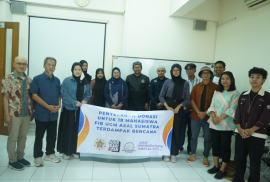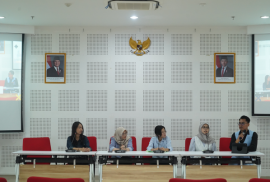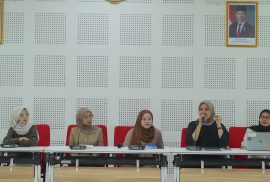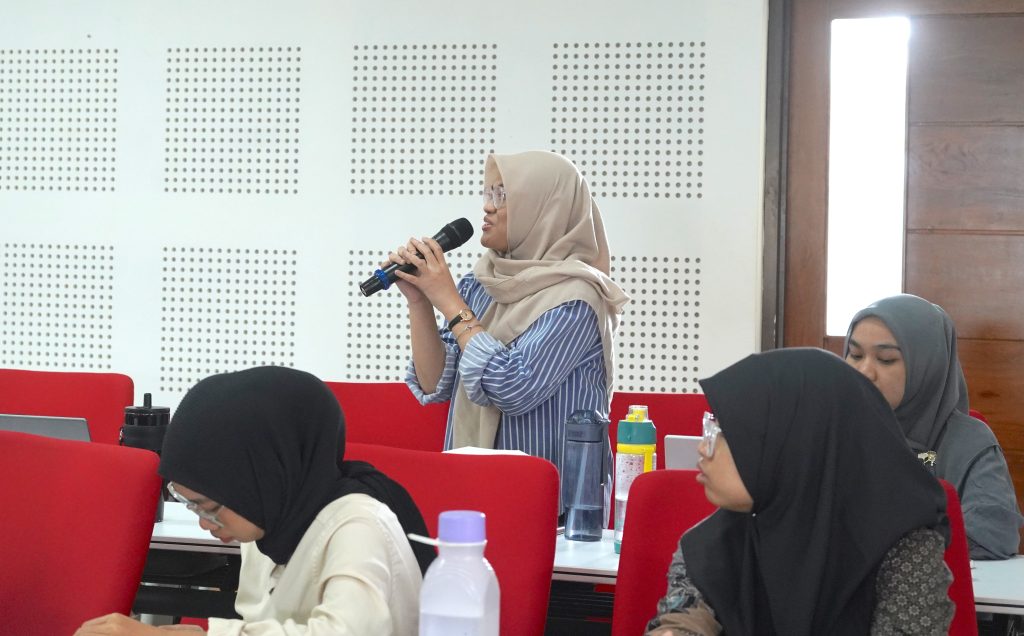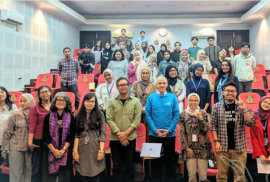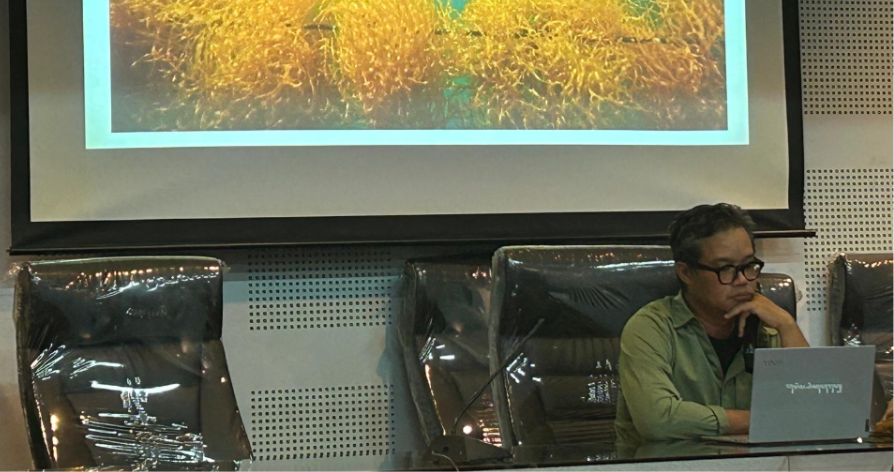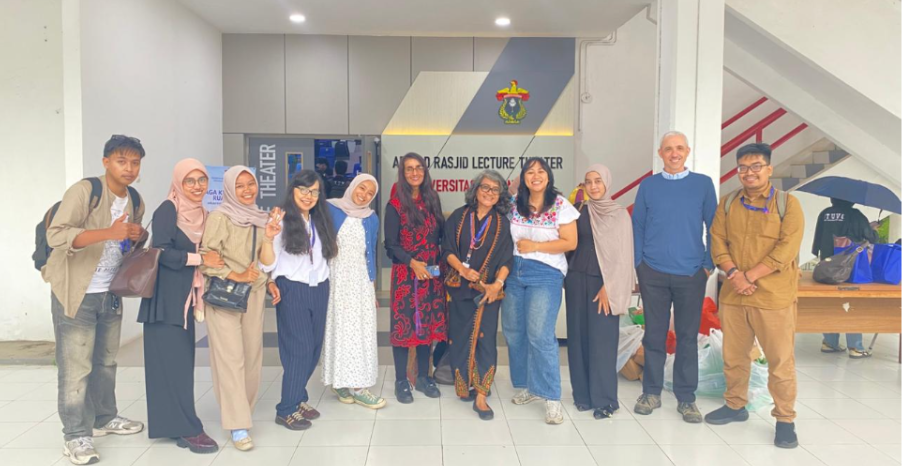Yogyakarta, January 8, 2025 — The Faculty of Cultural Sciences (FIB), Universitas Gadjah Mada (UGM), facilitated the distribution of donations from Jogokariyan Mosque to 18 FIB UGM students from Sumatra who were affected by flooding. This assistance reflects the care and solidarity of various elements of society toward students directly impacted by natural disasters.
The event was attended by four representatives of the affected students from Sumatra, the Dean of the Faculty of Cultural Sciences, Prof. Dr. Setiadi, M.Si., the Vice Dean for Research, Community Service, Cooperation, and Alumni Affairs, Dr. Mimi Savitri, M.A., the Vice Dean for Finance, Assets, and Human Resources, Suray Agung Nugroho, S.S., M.A., Ph.D., Paksi Raras Alit as a representative of artists from the Jogja Hanyengkuyung Sumatra organizing committee, representatives of the Jogokariyan Mosque management, and volunteers.
Paksi Raras Alit explained that on Tuesday, December 23, 2025, the Jogja Hanyengkuyung Sumatra initiative was held as an expression of solidarity by musicians, event organizers, volunteers, and the Yogyakarta community to support those affected by flooding in Sumatra. He also noted that coordination had been carried out with Kagama and Kagama Care for the construction of sanitation facilities (MCK) in the affected areas, which has now begun. The fundraising effort was conducted in collaboration with Jogokariyan Mosque, which is widely recognized for its transparent and trustworthy fund management system, ensuring that the assistance would be distributed effectively and appropriately.
A representative of the volunteers stated that their presence at FIB UGM also served as an opportunity to strengthen ties and was expected to mark the beginning of further cooperation in social and humanitarian initiatives. Meanwhile, a representative of the Jogokariyan Mosque management explained that the mosque had been entrusted by the Jogja Hanyengkuyung Sumatra committee, along with recommendations from Kagama FIB, to distribute aid to FIB UGM students affected by the disaster in Sumatra.
The Dean of the Faculty of Cultural Sciences, Prof. Dr. Setiadi, M.Si., emphasized that FIB UGM remains open to various forms of collaboration, particularly those related to community assistance and community service activities. He also reaffirmed his support for synergy among universities, communities, and society in addressing shared needs.
The financial assistance distributed by Jogokariyan Mosque amounted to IDR 3,000,000 per student. The aid is distributed every three months through the Faculty of Cultural Sciences, UGM. The symbolic handover of the assistance during the final session of the event was represented by four affected students from Sumatra.
This donation distribution activity not only aims to alleviate the economic burden faced by students affected by the disaster but also seeks to ensure the continuity of their education while strengthening the spirit of mutual cooperation and cross-community partnerships. Through collaboration among educational institutions, religious communities, artists, volunteers, and alumni, this initiative also supports the achievement of the Sustainable Development Goals (SDGs), particularly in mitigating post-disaster social impacts, ensuring inclusive access to education, and strengthening partnerships for sustainable development.
[Public Relations of FIB UGM, Alma Syahwalani]

